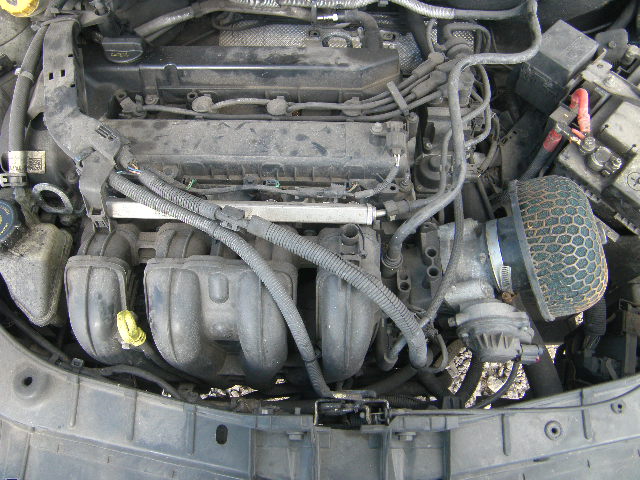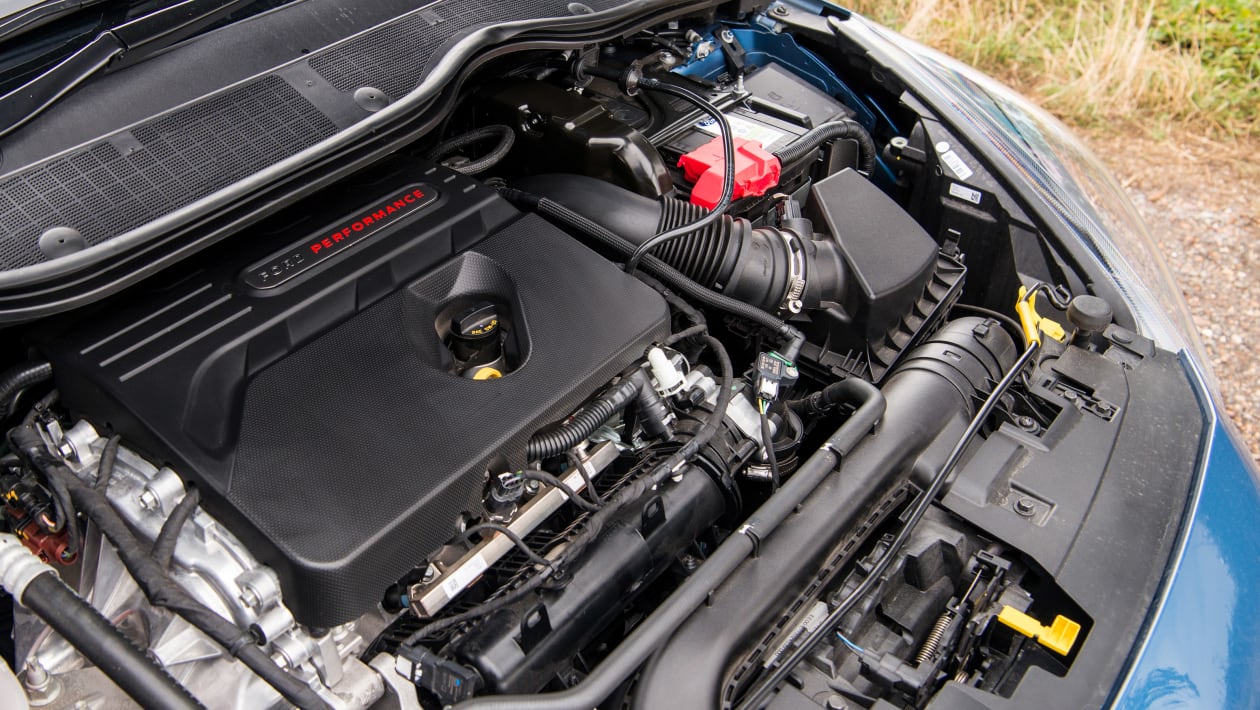Expert Tips for Optimizing Your Ford Fiesta Engine Efficiency
Wiki Article
The Future of Engines: Developments Driving Lasting Power Solutions
As the automobile industry navigates the necessary change towards sustainability, the future of engines is significantly specified by groundbreaking developments. Electric engine improvements, along with promising growths in hydrogen fuel cells and biofuels, are improving the landscape of power services.Electric Engine Developments
The evolution of electric engine advancements signifies a crucial change in the automotive and aerospace industries, driven by the immediate requirement for sustainable options to nonrenewable fuel sources. This shift is identified by substantial advancements in battery modern technology, power electronic devices, and electric motor layout, which collectively enhance the effectiveness and performance of electrical engines.Current technologies have brought about the development of lighter, extra energy-dense batteries, such as lithium-silicon and solid-state batteries, which assure longer varieties and much shorter billing times. In addition, renovations in electrical motor performance, such as the use of long-term magnets and advanced cooling systems, allow electric engines to run efficiently under differing conditions. These enhancements not just improve car performance however also add to a reduction in overall power consumption.
Furthermore, the assimilation of innovative software application algorithms has maximized energy administration in electrical lorries, enabling for regenerative stopping and predictive charging techniques. As suppliers increasingly welcome electrical propulsion, the automobile and aerospace sectors are observing a paradigm shift towards greener technologies. This development not just fulfills governing demands yet likewise straightens with consumer preferences for eco-friendly transport services, strengthening electrical engines as a keystone of future sustainable movement.
Improvements in Biofuels
As the automobile and aerospace industries significantly prioritize lasting energy resources, advancements in biofuels emerge as a complementary option to electric engines. Biofuels, stemmed from natural products such as crops, waste, and algae, offer an ingenious avenue for reducing greenhouse gas discharges and dependence on nonrenewable fuel sources.Current research has actually concentrated on enhancing the efficiency and sustainability of biofuel manufacturing. Second-generation biofuels make use of non-food feedstocks, lessening competition with food supply and minimizing ecological influence. Improvements in synthetic biology have made it possible for the design of microorganisms to create biofuels extra effectively, leading to higher yields and lower manufacturing costs.
In addition, the growth of drop-in biofuels enables smooth integration right into existing infrastructure, enabling a smoother transition for industries traditionally based on nonrenewable fuel sources. ford fiesta engine. These gas can be made use of in present engines without adjustments, facilitating their fostering throughout numerous industries
Investments in biofuel innovation, along with helpful policies, are necessary to drive technology and scalability. As the worldwide community looks for to combat environment adjustment, biofuels supply a practical, prompt remedy that straightens with the overarching goal of sustainability in transportation and aviation.
Hydrogen Gas Cell Technology
A growing number of scientists and companies are discovering hydrogen fuel cell modern technology as a viable option to conventional power resources in transportation and energy systems. This technology transforms chemical power from hydrogen right into electricity via an electrochemical reaction, with water as the only byproduct, making it an eco-friendly option.The core of hydrogen fuel cells is the fuel cell stack, where hydrogen particles are divided right into protons and electrons. The circulation of electrons generates electricity, while protons move via a membrane layer to combine with oxygen from the air, developing water. This process results in high performance and reduced emissions, positioning hydrogen fuel cells as a crucial gamer in the transition to lasting energy.
Substantial innovations have been made in improving the resilience and effectiveness of gas cells, together with decreasing expenses through innovative production techniques. The advancement of hydrogen production methods, such as electrolysis powered by renewable energy resources, boosts the sustainability of the general this hyperlink system. As facilities for hydrogen refueling expands and manufacturing methods come to be extra effective, hydrogen gas cell innovation holds great pledge for decarbonizing numerous fields, consisting of heavy-duty transport and stationary power generation.
Crossbreed Systems and Their Impact
Hybrid systems represent a significant evolution in sustainable engine modern technology, merging standard inner burning engines with electrical propulsion to optimize energy efficiency and reduce exhausts (ford fiesta engine). This dual technique permits automobiles to utilize both source of power, enabling better adaptability in power intake and lowering reliance on nonrenewable fuel sources

In enhancement to environmental advantages, hybrid systems provide customers a viable change towards totally electrical cars. They relieve range anxiousness by incorporating the comfort of gasoline with the benefits of electrical propulsion, making them an attractive choice for a wider audience. As makers purchase hybrid innovation, the growth of even more innovative battery systems and light-weight materials continues to improve performance. Generally, crossbreed systems stand for a crucial action towards attaining sustainable transportation and dealing with the immediate demand for eco-friendly power solutions.
The Role of AI in Engine Layout
Leveraging innovative formulas and artificial intelligence strategies, the auto industry is progressively incorporating expert system (AI) into engine layout procedures. AI enhances the performance and effectiveness of layout by analyzing vast datasets to recognize ideal configurations and performance specifications. This capability permits engineers to imitate various operating conditions and predict engine actions under several scenarios, significantly minimizing the moment and expense connected with typical prototyping methods.Furthermore, AI facilitates the growth of innovative materials and burning processes customized for sustainability. By optimizing gas efficiency and reducing discharges, AI-driven designs straighten with global initiatives targeted at decreasing the carbon footprint of automotive engines. Device knowing algorithms can likewise predict maintenance requirements, causing enhanced integrity and longevity of engine parts.
In Addition, AI contributes in the combination of electrification technologies, such as hybrid systems, where it can maximize battery administration and power healing processes. As the market moves in the direction of more sustainable power remedies, the role of AI in engine layout becomes significantly important, driving innovation and boosting the efficiency of future engines. Eventually, the collaboration in between AI and engine design advertises a new why not find out more age of smarter, linked here cleaner, and more efficient vehicle innovations.

Final Thought
In conclusion, the future of engines is being formed by a convergence of ingenious technologies that prioritize sustainability. Electric engine advancements, biofuel growths, hydrogen fuel cells, and hybrid systems collectively contribute to a significant decrease in exhausts and environmental influence.Electric engine improvements, alongside promising developments in hydrogen fuel cells and biofuels, are reshaping the landscape of power remedies. Furthermore, enhancements in electrical motor efficiency, such as the usage of long-term magnets and progressed cooling systems, allow electric engines to run successfully under varying problems. By optimizing fuel performance and lessening emissions, AI-driven layouts straighten with worldwide initiatives intended at decreasing the carbon footprint of vehicle engines. As the market moves in the direction of even more sustainable power options, the role of AI in engine design ends up being progressively crucial, driving advancement and boosting the performance of future engines. Electric engine innovations, biofuel growths, hydrogen fuel cells, and crossbreed systems jointly add to a significant reduction in emissions and ecological influence.
Report this wiki page